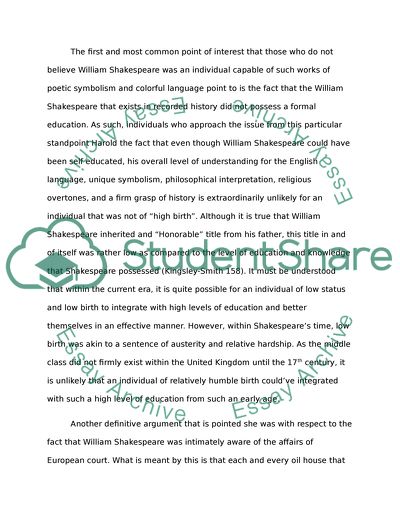Cite this document
(“Shakespeare's Mystery Identity Research Paper Example | Topics and Well Written Essays - 2250 words”, n.d.)
Shakespeare's Mystery Identity Research Paper Example | Topics and Well Written Essays - 2250 words. Retrieved from https://studentshare.org/english/1493382-shakespeare-s-mystery-identity
Shakespeare's Mystery Identity Research Paper Example | Topics and Well Written Essays - 2250 words. Retrieved from https://studentshare.org/english/1493382-shakespeare-s-mystery-identity
(Shakespeare'S Mystery Identity Research Paper Example | Topics and Well Written Essays - 2250 Words)
Shakespeare'S Mystery Identity Research Paper Example | Topics and Well Written Essays - 2250 Words. https://studentshare.org/english/1493382-shakespeare-s-mystery-identity.
Shakespeare'S Mystery Identity Research Paper Example | Topics and Well Written Essays - 2250 Words. https://studentshare.org/english/1493382-shakespeare-s-mystery-identity.
“Shakespeare'S Mystery Identity Research Paper Example | Topics and Well Written Essays - 2250 Words”, n.d. https://studentshare.org/english/1493382-shakespeare-s-mystery-identity.


